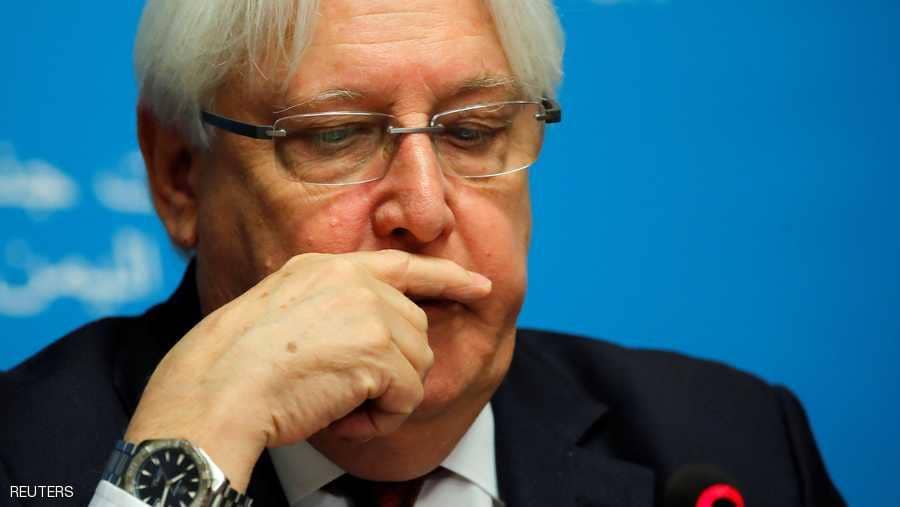فيس بوك
جوجل بلاس
قيادة البعث القومي تعزي الإصلاح في رحيل الشيخ الزنداني وتشيد بعطائه وأدواره المشهودة
تشييع مهيب للشيخ الزنداني شارك فيه الرئيس أردوغان وقيادات في الإصلاح
البكري: ترك الشيخ الزنداني بصمة لا تُمحى وصوته الداعي إلى السلام والتسامح
اللواء العرادة يعزي بوفاة الشيخ الزنداني ويشيد بإسهاماته وأدواره الوطنية ومواقفه النضالية
علماء وهيئات إسلامية في دول عدة ينعون العلامة الشيخ عبد المجيد الزنداني
منظمة إكرام ماليزيا: رحيل الزنداني خسارة لليمن والعالم الإسلامي
بن دغر يعزي قيادة الإصلاح في رحيل الشيخ الزنداني بعد حياة حافلة بالعطاء الوطني والدعوي الإنساني
حزب السلم والتنمية يعزي الإصلاح وأبناء فقيد اليمن الكبير الشيخ الزنداني ويسرد مناقبه
مكاتب الإصلاح بالمحافظات: برحيل الشيخ الزنداني خسرت اليمن قامة وطنية وداعية صادقاً

Martin Griffiths, the Secretary-General's Special Envoy to Yemen, called those described by the Yemeni parties for a constructive and speedy participation to allow ships to enter the port of Hodeidah.
In his tweet on Twitter on Friday, he said, "I appeal to everyone to participate constructively and quickly to allow ships to enter the port of Hodeidah and use the revenue to support the salaries of public sector employees."
The areas controlled by the Houthi militia have been experiencing a stifling crisis in oil derivatives for nearly a month, amid continued refusal and obstruction of ships to enter the port of Hodeidah by the Houthi militia, who loot the port's revenues despite signing an earlier agreement sponsored by the United Nations to supply the port's revenue to the account of the state employees in the governorate.
The statements of the UN envoy came one month after the Houthi militia plundered 35 billion riyals from the Central Bank in Hodeidah, which were supposed to be disbursed to state employees, according to the agreement.
At the same time, Griffiths called on the two parties to support his efforts to find a solution "that serves the interests of the Yemeni people."
This call came after his failure to persuade the Houthi coup militia to implement the Stockholm Agreement signed with the legitimate government at the end of 2018.
Last year, Griffiths sponsored an agreement between the legitimate government and Iran-backed Houthi coup militias to supply customs and taxes revenues imposed on ships, especially fuel shipments arriving at the port of Hodeidah, in an account for the Central Bank branch in Hodeidah to use these funds to pay government employees' salaries, however, weeks ago, the legitimate government accused the pro-Iranian group of turning against the agreement, after it seized about 35 billion riyals (about 58 million dollars) in the designated bank account, and used these funds for the militia’s war effort.
At the time the Houthi group invests in fuel in the areas it controls and opens doors for the leadership of its militia to do business in selling oil in the black market at the expense of the suffering of the population, who are facing the most severe crisis reflected in all aspects of life, Griffiths seeks to create fit conditions for the Houthis to gain more from selling oil in the market and increasing the suffering of Yemenis in the areas of the militias' control.